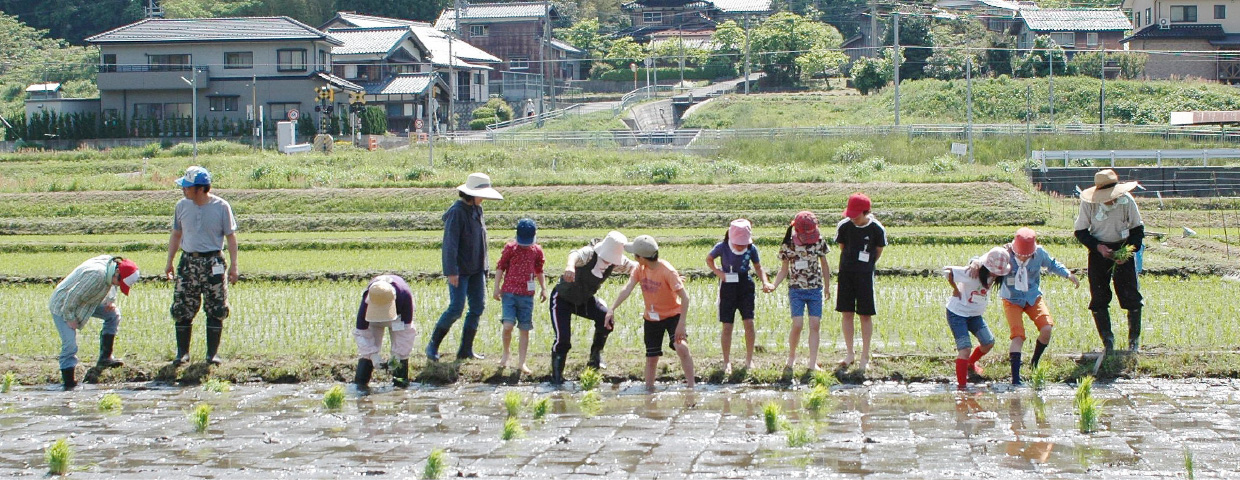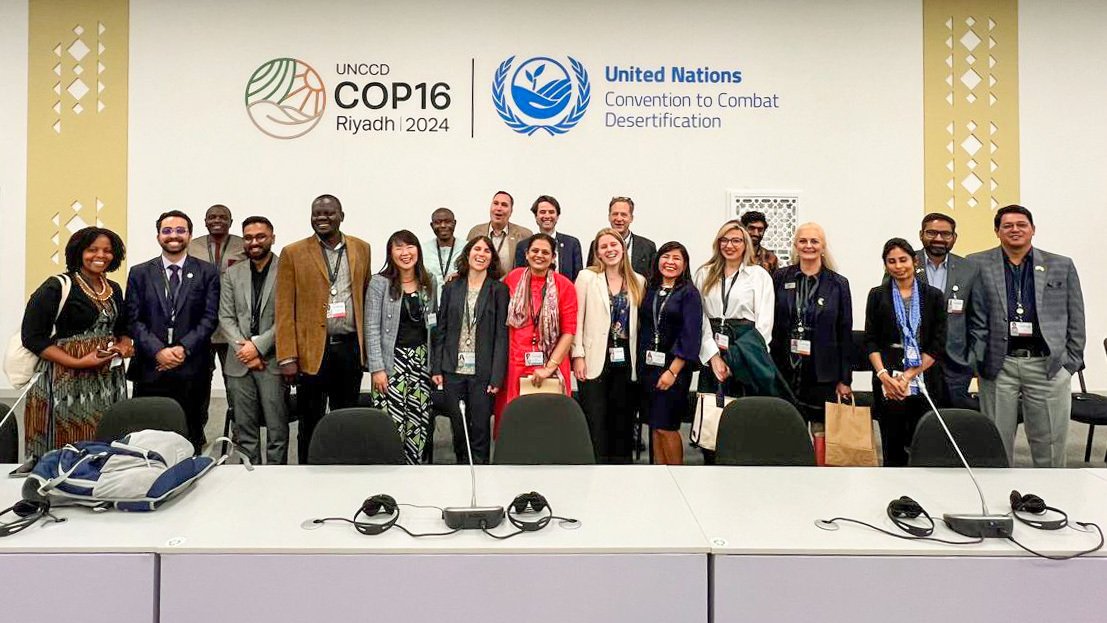NEWS

UNCCD COP16 Side Event Explores Landscape Approaches for Socio-Ecological Resilience
2024.12.16

On 10 December 2024, UNU-IAS co-organized a side event of the sixteenth session of the Conference of the Parties of the United Nations Convention to Combat Desertification (UNCCD COP16) in Riyadh, Saudi Arabia. It discussed the role of integrated landscape approaches in fostering socio-ecological resilience, examining the links between production, development and conservation goals through innovative land and water management strategies.
Lisa Hartman (Research Associate, UNU Institute for Environment and Human Security; UNU-EHS) presented a report on The Contribution of Land and Water Management Approaches to Sustainable Land Management and Land Degradation Neutrality. The report evaluates the alignment of seven land and water management approaches, identifying entry points to address gaps and providing guidance for UNCCD Parties in planning and assessing land and water management projects.
Introducing IPSI’s work, Suneetha M. Subramanian (Research Fellow, UNU-IAS/IPSI Secretariat) explained how landscape approaches function as integrated strategies to manage natural resources and biodiversity in a way that balances environmental, social and economic needs. She noted that these approaches also promote inclusive governance by engaging diverse stakeholders in a landscape and can be a lever to achieve socio-ecological resilience. Through IPSI, UNU-IAS conducts research on socio-ecological production landscapes and seascapes (SEPLS), and produces tools such as a guide to Using Landscape Approaches in National Biodiversity Strategy and Action Planning and Indicators of Resilience in SEPLS that integrate biophysical and social dimensions to meet the needs of communities.
An interactive discussion shared insights on operationalizing systems approaches and overcoming barriers to socio-ecological resilience at the landscape scale. Participants explored challenges in promoting and implementing socio-ecological systems approaches and the resources needed to address these challenges.
Mariaelena Huambachano (Assistant Professor, Syracuse Uni; Delegate and Associate Researcher, UNPFII) pointed out that Indigenous knowledge is often excluded from policy discussions because it is not considered evidence recognized by the scientific community. She stressed the importance of building partnerships and trust with Indigenous Peoples, supported by adequate financial resources.
Rissa Edoo (Partnership Specialist, UNDP GEF Small Grants Programme) highlighted the Community Development and Knowledge Management for the Satoyama Initiative (COMDEKS) programme implemented in partnership with UNU-IAS. It provides financial and technical support to Indigenous Peoples and Local Communities (IPLCs), as well as community-based organizations, enabling them to sustainably manage SEPLS and foster societies in harmony with nature.
Participants discussed the importance of implementing systems for monitoring and evaluating the impacts of landscape approaches, ensuring their effectiveness in achieving socio-ecological resilience. Thomas Miewald (Director of Programs, EcoAgriculture Partners) described the challenges of creating and sustaining landscape partnerships. He stressed that these efforts require adopting a long-term perspective and addressing challenges at larger spatial scales, and that developing local leadership capacities is crucial for operationalizing landscape approaches.
The event was co-organized by UNU-IAS and UNU-EHS.


